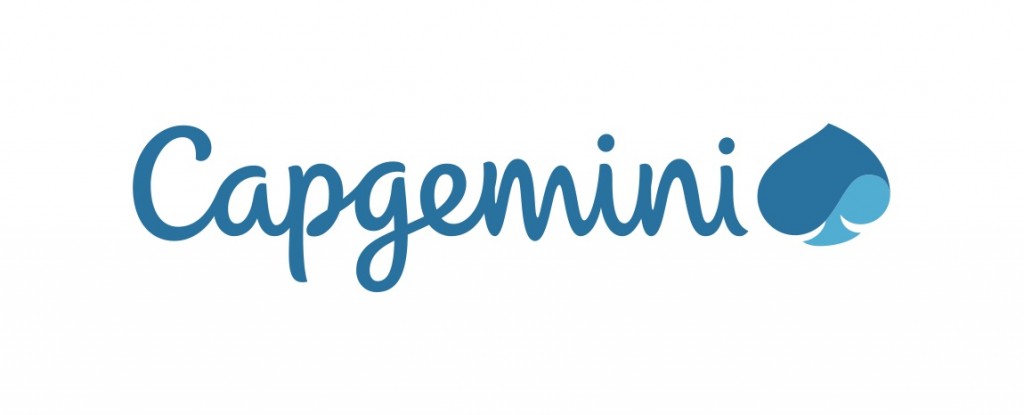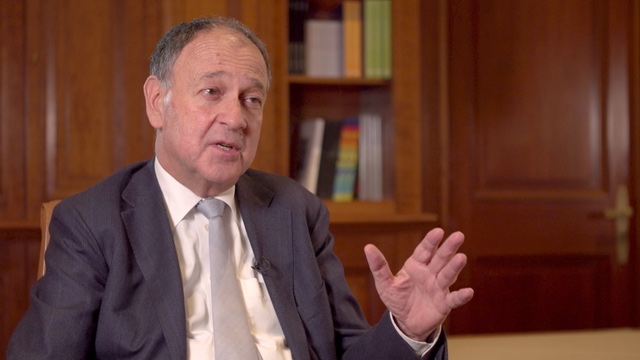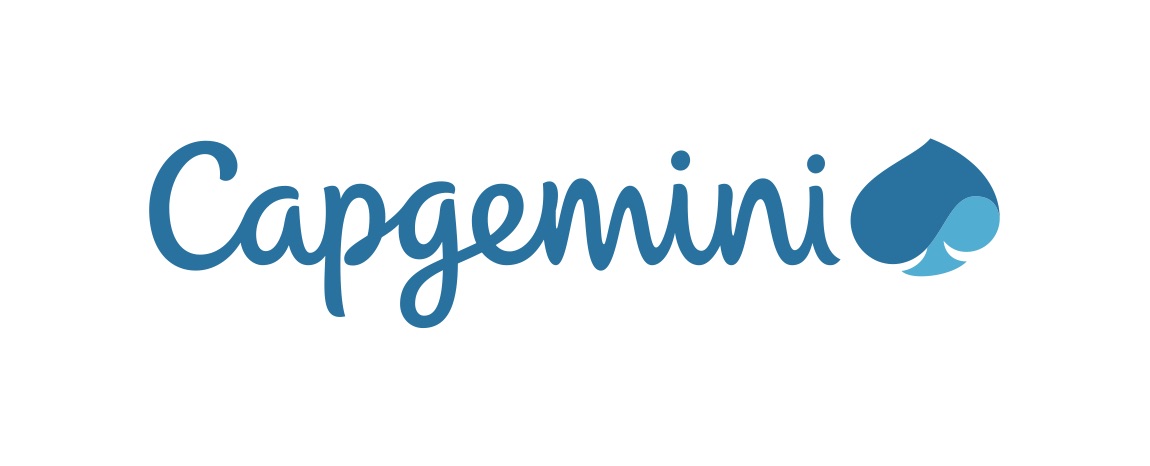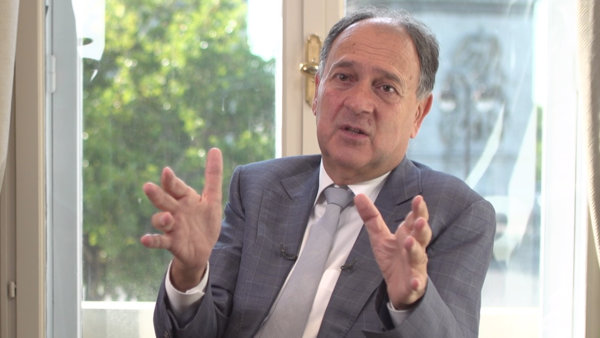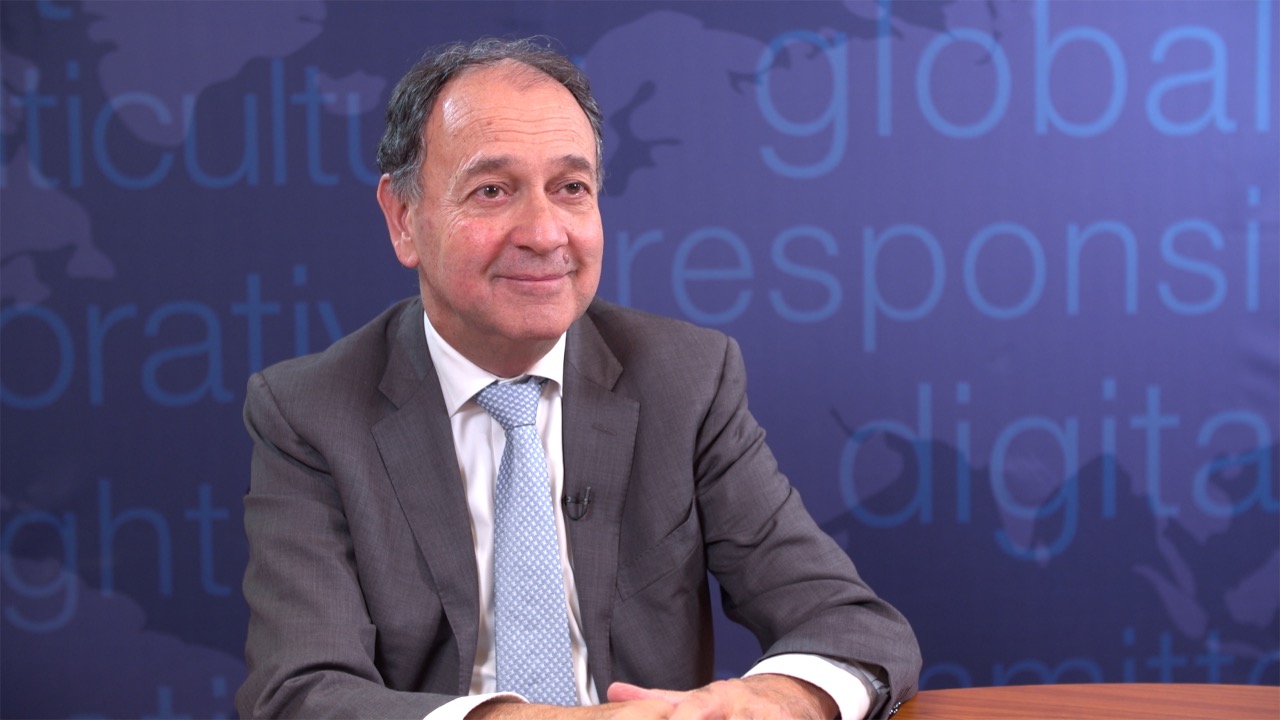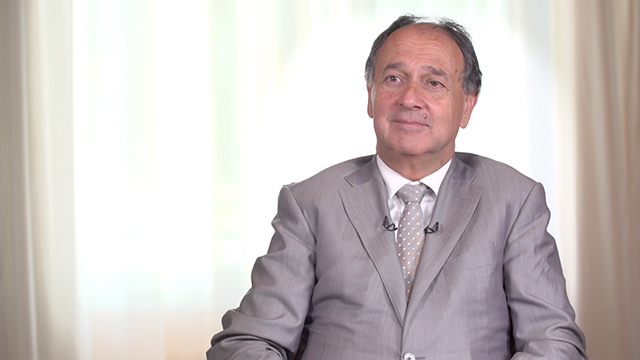EuroBusinessMedia (EBM): Capgemini, a global leader in Consulting, Technology and Outsourcing Services, reports its 2010 full-year results. Paul Hermelin welcome. You are the CEO of Capgemini. What are your comments on the Group’s full-year results?
Paul Hermelin (PH): My first satisfaction is that we had said we would resume growth in the second half and we did. And we did it pretty well. I was about to say comfortably; that might be a little too much. But we saw a nice acceleration in the fourth quarter. If you remember last summer, after a first half where we had declined a little bit and progressively coming back to stability, we said we would grow 3% to 5%. We beat it – we’re in the upper range – and with a pretty nice fourth quarter. So full-year, our top line will show a growth of 3.9%, but that includes some acquisitions, so we should be more clear and say that the total top line declined by a little more than 1 point. So it’s still negative. But the fourth quarter was a growth of nearly 17%, again thanks to an acquisition, but reaching 5.8% at constant rate and constant perimeter. So we see a momentum and that’s good when we enter 2011 to see that momentum. On the margin guidance, we have been successful too. If you remember last year, when I showed the full year 2010 guidance, the guidance for the margin was 6% to 6.5%. We will have delivered 6.8%, so we beat the guidance by 0.3% and that is rather satisfactory. Even if I must confess that our margin slides a little bit compared to 2009, and we’ll have to change that. The net shows a very solid growth, more than 50%. Big cash at the end, we could collect good cash and again our net cash position is in excess of a billion euro, which allows us to distribute or propose to the general assembly the distribution of a nice dividend of 1 euro per share.
EBM: After many consecutive quarters of decline, are you now confident in the rebound of your Consulting Services business?
PH: So, consulting in the fourth quarter is still in decline, so that’s a concern. Now we know where we have a problem and I would say that it’s where the demand for consulting coming from public administration has collapsed. So we are growing consulting everywhere – a splendid +19% in consulting in France, which is a rather good number – but we still declined in the UK and in Holland because there the public administration has completely stopped. So we think, first, progressively we rebalance our portfolio towards more commercial customers, and we think even the public sector might resume buying a little bit of consulting, probably in the second half of this year. So my view is the first quarter will probably see a minute decline and thereafter I would expect consulting to grow.
EBM: What is your update on the take-up of your offshore offering by European clients? Do you need to grow your offshore offering faster, or have you now reached the right balance, when compared to the actual demand for offshore by European clients?
PH: So, I mentioned a few times that in Europe there are countries where English is an easy working language, and offshore is becoming a standard part of our offering. So that works for the UK, of course, but most of Scandinavia, most of Benelux and progressively biting into Germany. And if you see the offshore leverage of those in Europe, we have increased our leverage – how many people working from offshore and from onshore – by more than 5 points. So that starts to be significant. This being said, what I want to stress – I was at the Nascom big week in India last week – India now is still growing, I was about to say madly, so very strongly. But we are growing in India too, so we have the pace of the best players. From January to December, we grew our Indian headcount by 32%. That probably puts us at the second best growth among all Indian players, and we take our benefit of that movement. This being said, we have started, since July, to recruit onshore in our historical countries by more than 3,000 people a quarter – net recruits, so it’s not only to replace leavers, but net additions. So we are now growing headcount in our historical countries, France, Sweden, the US, by today close to 4,000 people a quarter.
EBM: What are your comments on your recent acquisition of CPM Braxis in Brazil, and what are the next steps in your acquisition strategy?
PH: First, CPM Braxis works very well. So we have beaten our fourth quarter estimates. And they took an objective of growing again more than 20% next year, purely organic. This is rather splendid and the Brazilian economy is helpful to deliver this ambition. We will do acquisitions of three kinds. First, expand our footprint in fast growth economies. My goal is to progressively reach 10% of the group revenue from fast growing economies, so China, but possibly some other Latin American countries or some other Asian countries. Second, I want the group to invest in some new offerings, what I call new business models, which would be around cloud, about solution as a service, so the new demand, the new offerings in the IT world. And third, smaller acquisitions that accelerate our organic growth, so the hot demand. So we bought a very small thing on mobile SAP. So you see, it’s no longer SAP but it’s about mobility, the smart phone. How do you use a smart phone to operate on a SAP system? That kind of thing. You will see us doing this kind of small acquisitions that are growth accelerators.
EBM: Speaking of acquisitions, what is your reaction to the recent Atos-Siemens merger? What does it mean for the sector in general, and for Capgemini in particular?
PH: The first point is, I instantly congratulated Thierry Breton. It’s good that we have two French companies leading the European pack. I must confess that I still think we are bigger as a European player, and I think 2010 already shows it and 2011 will confirm it. But competition is, in my view, the engine of performance, so I’m delighted by these new competitors.
EBM: How will you be impacted by the ongoing trend towards decreased government spending, notably in the UK?
PH: So, the first point is, we came to a good agreement with the government. We made some productivity gains, we confirmed some long-term commitment. We were among the first to come to an agreement with the new government. Fine. Now we are proactive, proposing to reach additional savings with more productivity and more technology, and I’m rather confident that we can sell that to her Majesty’s Government.
EBM: What is your guidance and outlook, for both growth and margin improvement in 2011?
PH: The first point is, I think we should understand that this group now, with its balance sheet, will grow and do acquisitions. Just on the back of the acquisitions we have done last year, we will grow 9% to 10%. Not a way to hide something, I will instantly say, at constant perimeter it would be 4% to 5%, but I would say we have embarked on a fast growth trajectory. We want to invest in growth, but that will not prevent us from raising our margin objective. And my guidance today is that we should expect the group to increase its margin – minimum 50 bps up to 100 bps – so a margin improvement by half a point to one point of margin.
EBM: Paul Hermelin, CEO of Capgemini, thank you very much.
PH: Thank you Adrian.

